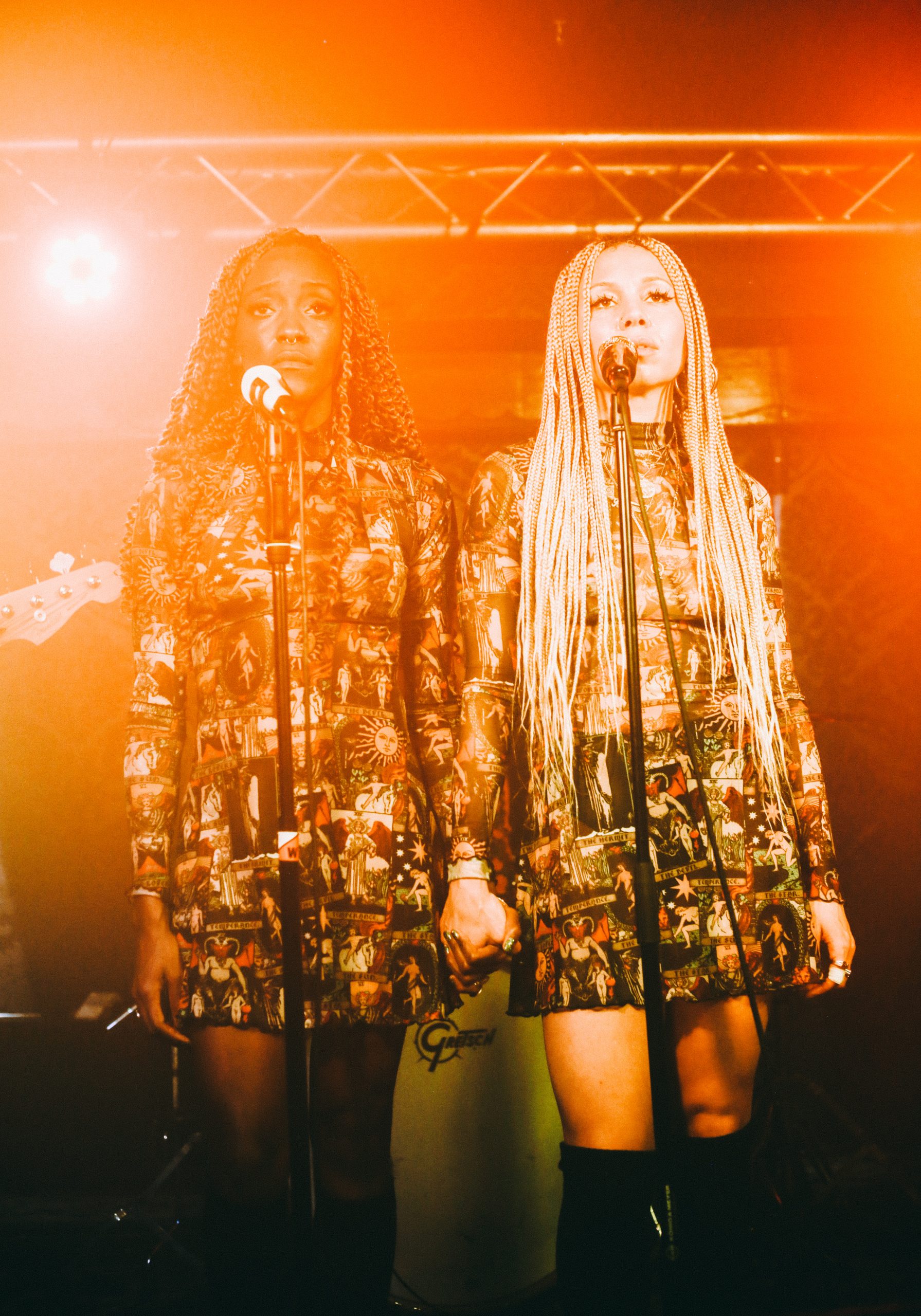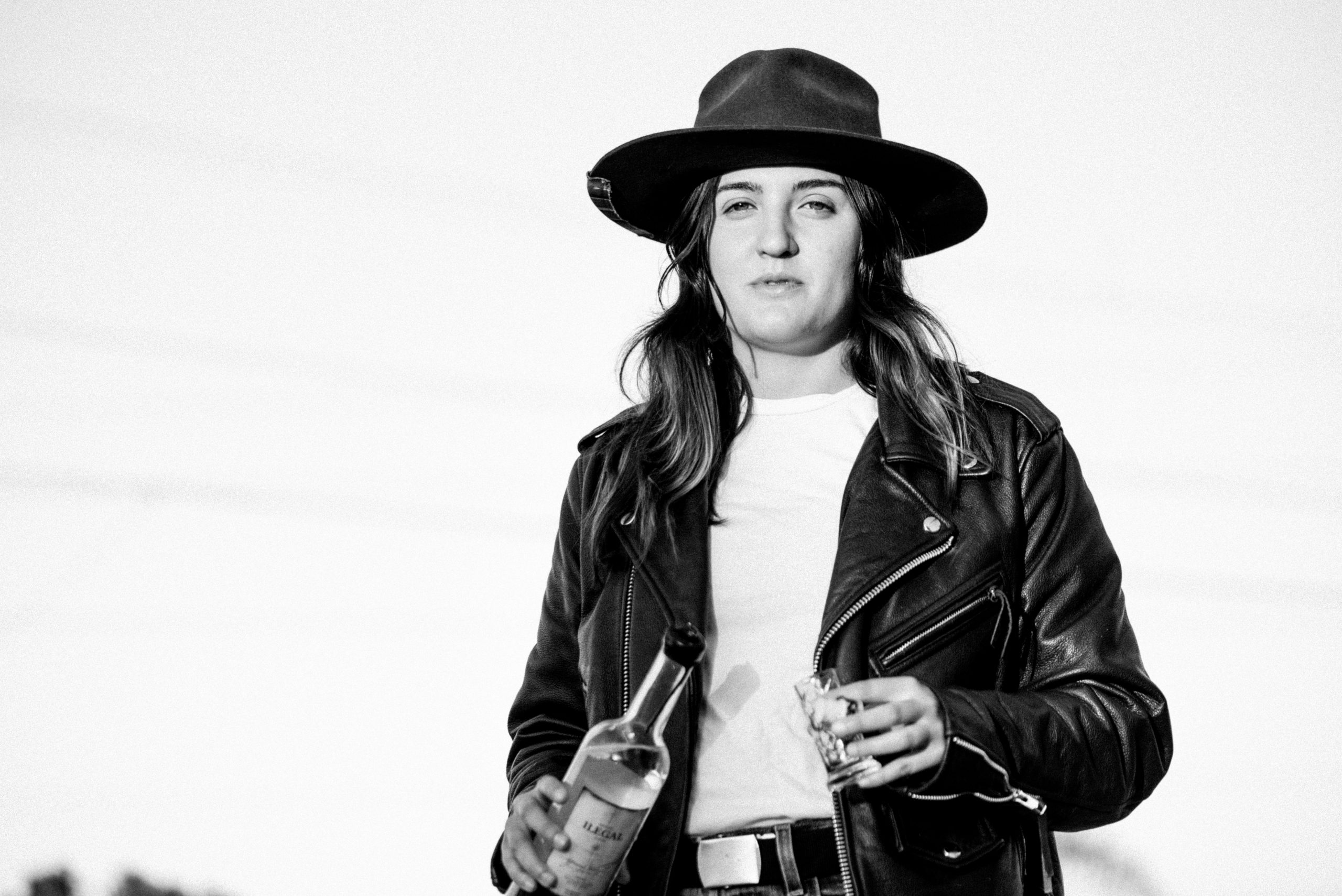
Brands are always looking for ways to authentically connect with people. While some have a history of missing the mark entirely, and others are just now jumping on all the bandwagons, there are a few companies out there that have had remarkable core values from the jump. Enter Ilegal Mezcal and its founder, John Rexer.
The story you’ll most likely hear about Ilegal is that in 2004-ish, a small group of artists, musicians, writers and travelers started drinking this handcrafted spirit with a notorious history that included first smuggling the product from Oaxaca, Mexico followed by weeklong parties in Café No Sé in Antigua, Guatemala. Over the years the brand developed. But there is so much more—so much passion and community driven focus than what most people know.
It was with out of a pure love for music that in September of 2019 Ilegal partnered with Niles City Sound (the production and songwriting team consisting of Josh Block, Austin Jenkins, and Chris Vivion) in Fort Worth, Texas, to create the Untitled Music Project and to record the newly formed rock supergroup SUSU (Liza Colby Sound and Kia Warren of Revel in Dimes) who had been playing together at the most sought after NYC music venues. When Ilegal presented a collaboration and the opportunity to record, “it just seemed like the logical next step,” Kia says.
For Liza, the partnership with the brand came with recognizing that “we certainly didn’t realize how much we needed each other. To see another woman of color fronting a rock band, and consider her a contemporary set a powerful, positive example for us. We all need to see women supporting each other.”
Josh brought together a group of musicians whose touring credits include Leon Bridges, Carrie Underwood and Ben Harper, among others, and the project took off. At the heart of it all is a three part docu-series showcasing the studio sessions; The recordings now an upcoming EP, and much more to come. For SUSU, Kia says this project is really about “fostering a community, it’s really uplifting.”
Many people hear Ilegal Mezcal and jump to the part of the brand’s story that involves the literal smuggling of mezcal, but there is more to it than that. Can you share what else is behind the name?
Kaylan Rexer (CMO of Ilegal Mezcal): Yes, Café No Sé (where Ilegal was conceived) is a really incredible place. That is the reason why we have all the live music and the connection with art and politics and conversation. But the other piece of the name is wanting to be able to call into question the different laws that exist and what their moral compass really is. Throughout history there have been things that take place that are horrific and have been done legally, we see this happening over and over again [and now]. Specifically at the border. It’s all a direct result of immigration policy. That was the other big inspiration behind John [founder] picking the name.
What was the aha! moment behind creating The Untitled Music Project?
Kaylan: We didn’t really know what we wanted it to be, we wanted to give that space for Josh and the artists to work together. I think the real aha moments came during and after, when we were looking at the footage and listening to the output – it was clearly very special. Our entire team is proud of it. The only intention was to put them all in a room together and make something really beautiful.
How did the partnership with Niles City Sound and SUSU come about?
Kaylan: Both involved a lot of mezcal. We had this idea to throw a midnight music series. I can say, without bias, the first performance in that series will go down as one of my favorite live music performances ever. It was the first time Liza and Kia were on stage together—the energy was just beautiful. We wanted to create a space that could be a canvas for the artist and the producer to create something.
2020 has society looking at brand authenticity in a whole new way. How does the Untitled Music Project speak to that?
Kaylan: This [Project] is a year in the making. A lot of the issues that Kia and Liza speak on have been prevalent for a long time, they are just bubbling up again now. My hope is that 2020 leads to less Instagram influencers and materialism and is more invested in real art and creators, giving a platform to people like Liza and Kia who are creating art and talking about what’s happening [in the world]. I think we’ve lost a little bit of that. We want a lot more space and desire – we’ve always done that as a brand, it’s what drew us to Liza and Kia. I hope a lot of people gravitate to this project and they want more of that.
SUSU = USUS. Talk about the name, the meaning behind it and the message you want people to hear…
Kia: When we were first trying to come up with names we were coming up with all these things that sounded cool but only really spoke to a portion of who we were. Then I remembered this Jamacian word susu—it means a gossip or a buzz—a communication that catches on fire. And you can also use it in a way where there’s a money partnership, where the community kind of like puts in a pot, and then one person takes it and then puts money back, and then the next person takes it. It’s sort of like, how do we pool our resources, so that everyone is abundant? It just spoke to everything that Liza and I had been doing together. And what we want to really do with this band is start with what aligns us and what our intentions are, and really be conscious of what’s going on in the world, as well as in our hearts. And hopefully, people will feel that, you know what I mean, and spread the message…
Liza: We had narrowed it down to SUSU and two other names. Really the foundation of our friendship is that we found each other during a time, both of us were doing rock and roll. You don’t see Black women doing rock. Neither of us had labels, we were both doing this by the skin of our teeth. How can we bring other people in instead of having people be left out? When you see SUSU and flip it is USUS—it just felt immediately bigger than all the other names.
Being Black womxn in a mostly white male dominated rock music industry: What challenges you the most? What uplifts you?
Kia: It’s not just being Black women in white dominated music. What challenges me the most is knowing how I feel about something, and then saying it outloud and being challenged. It’s difficult sometimes to hold your own and talk about something that maybe is not everyone’s experience in the room but it’s your experience and it’s up to you to express it, be it subject matter or the direction of a song. It’s tricky to walk into a studio and say, ok we’re going to do a song that’s Nina Simone over Ted Nugent and it’s going to be a protest song…
Liza: One of the challenges with music in general is that there’s not a path. [In other industries] if you do this, and you know you’re at point A, this is definitely going to get you to point C. One of the huge rewards in working with Kia is that I have a partner who’s my advocate, so we make decisions together. Sometimes it feels like you’re always begging people for a chance. One of the most rewarding things, especially working with Ilegal, we didn’t have to ask for that chance. We just have people that believe in us…

What’s been the most pivotal moment in your careers so far?
Both: THIS IS IT.
Kia: It’s the craziest culmination of all the work we’ve done: personally, professionally, creatively. This moment actually speaks to everything that we’ve done so far. And we really haven’t even started yet. So for me, it feels like the most momentous part of my career and my life, so far.
Liza: Every single thing that Kia and I do always exceeds my expectations. I’m proud of us. And it feels validating because you realize somebody is in your corner, and I’m in her corner.
How do you feel that your music is a form of activism?
Liza: The nature of being Black women in music doing what we’ve been doing for this long is already activism. Through this EP and our tour we get the questions on how politics or the protest have influenced us. But we’ve always been on this. We’ve never not been saying all this stuff but now it has opened up our options on how to spread our messages.
Kia: We’re making art that is super personal. We’re coming from backgrounds of being Black, women, Liza comes from a multi ethnic household. I’m the first generation of my family to be born in America. And genuinely. always referring to your experience, sorting through it, sifting through it, practicing through it, seeing how the world sees you and reflecting back to what you see in the world. If we’re talking about feminism, racism, immigrant issues, yeah, our music is probably gonna end up delving into some deep shit that not everybody agrees with. So how can the music we’re making not be activism?
Liza: Music is one of the oldest mediums where you can connect with people. So it’s like, even let’s say a song is not particularly a political song, then somebody hears it. And they’re like, wow, that’s amazing but I don’t want to hear your political views. Your foot is already in the door, they already heard it, and they dig your music. And that kind of gives you just that little bit of an opening to be like, okay, well, let’s talk. And also, let’s just go towards love instead of hate and fear. Because that’s what all of this other bullshit is based around.
You both came from solo careers prior to finding each other. Share a bit about what your creative process is like…
Kia: I think a big part of our creative process is we want to create meaningful things that feel good for not just us but beyond us—we like to do shit on a really large platform. So I feel like the process that we’ve been finding ourselves doing is working on a song from the message side and then it’ll influence either the performance or a really big visual aspect.
Liza: I feel like we found a really great partnership because both of us have a similar work ethic. I show up because I know that Kia is going to show up. We’ll have ideas that trigger other ideas. We’re able to dip into our duality and find what that spectrum is going to be—what we can bring to the table. We really are better together. Like, I don’t need to be the star.
Kia: But you can be… but we can stand next to each other and then make a bigger light.
So what can the world expect next from SUSU? The fifth song and entire EP come out on November 13th. The band just might be working on a little secret holiday something. They also recorded a 13 song full-length album that’s coming out in February 2021. And let’s not forget the Untitled Music Project docu series.
SUSU and Ilegal bring on many warm fuzzy feelings— it’s a true brandmance. Liza is hopeful that “in such a pivotal time in the world, people can take this opportunity to really start going after what they believe. And that being positive can have a ripple effect that will actually do good. That’s what we’re all pushing over here, you know, we’re all one.”

CONNECT WITH ILEGAL MEZCAL
CONNECT WITH SUSU
INSTAGRAM // SPOTIFY // WEBSITE
photos / Sarah Craig (Live SUSU Photos)
story / Eve Simonsen

